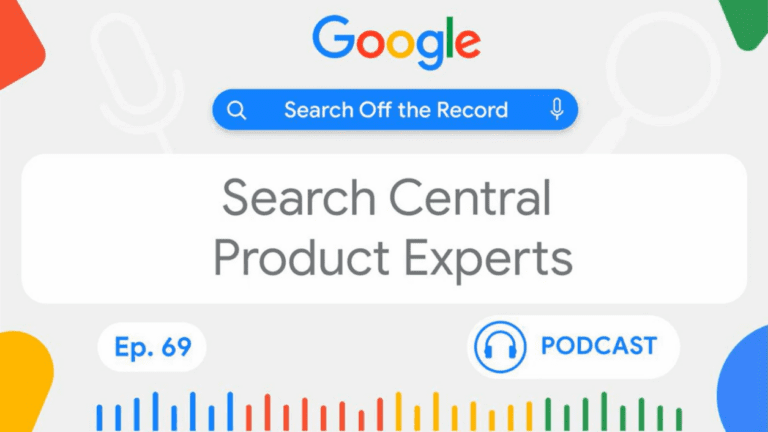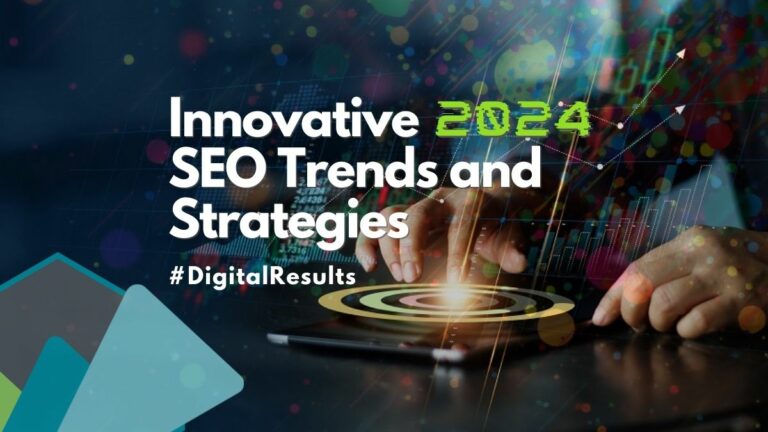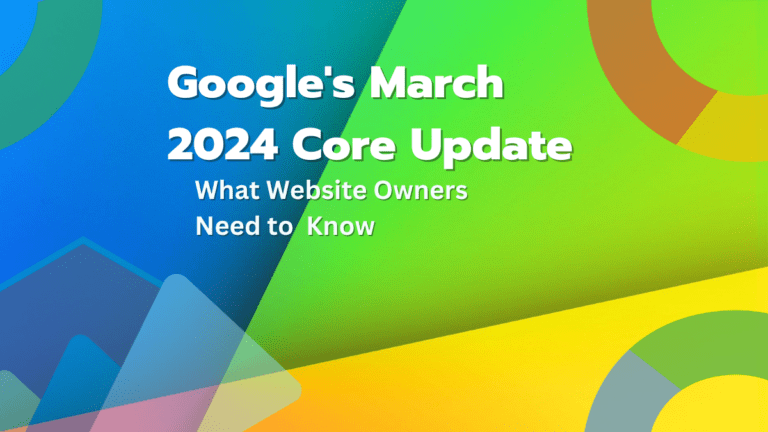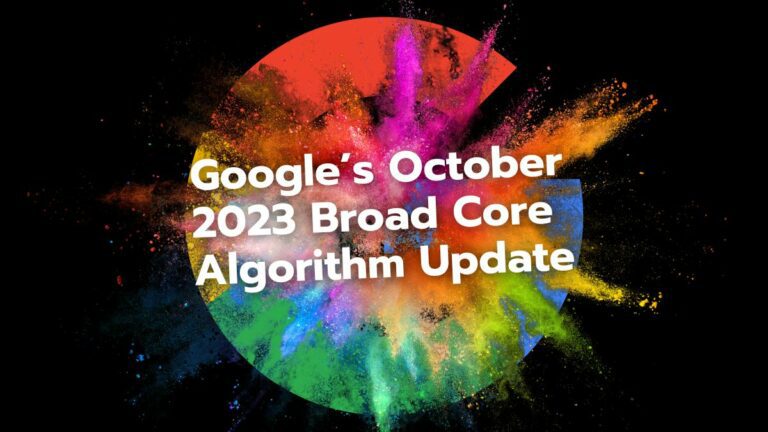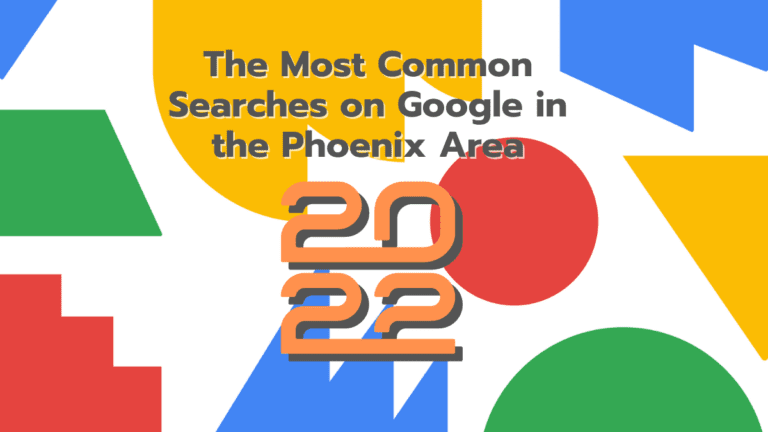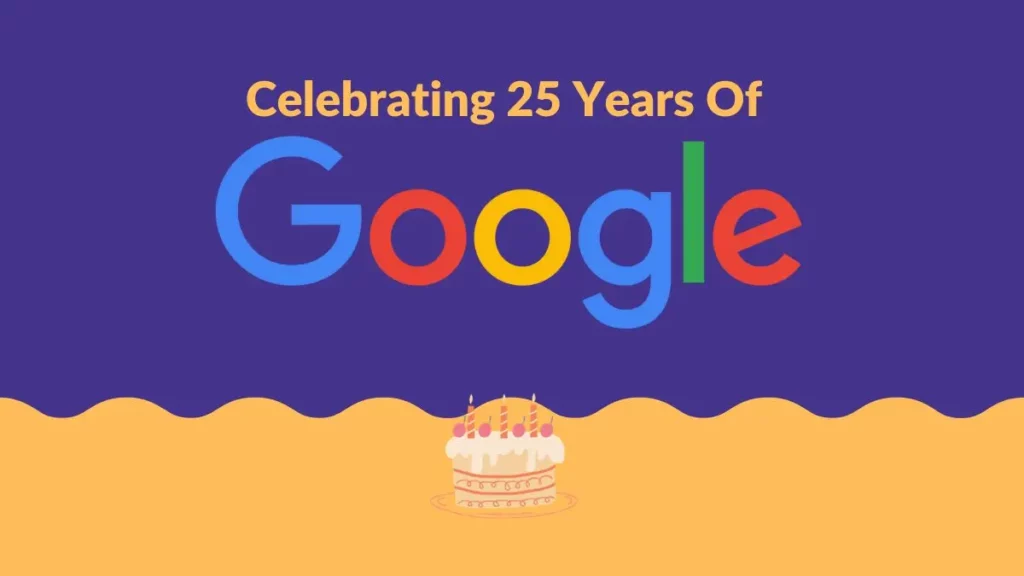
Celebrating 25 Years of Google
Google has been a true trailblazer. It’s transformed how we find info, connect, and engage with the world. As we celebrate Google’s 25th birthday, let’s take a look back at its top 25 milestones since it started in 1998.
Revolutionizing Online Search
Google’s inception in 1998 brought about a seismic shift in how we explore the vast digital landscape. Prior search engines often delivered cluttered and irrelevant results. However, Google’s proprietary PageRank algorithm transformed the search experience. It evaluated the relevance and authority of web pages, ensuring that users received the most pertinent information at their fingertips. This innovation laid the foundation for Google’s dominance in the search engine industry.
Introduction of AdWords

In 2000, Google launched AdWords, a game-changer in online advertising. AdWords empowered businesses to create highly targeted and cost-effective ads that appeared alongside search results. This innovation not only made advertising more accessible to companies of all sizes but also introduced the concept of pay-per-click advertising. It revolutionized the digital advertising landscape and allowed companies to reach their target audiences with unparalleled precision.
Birth of Gmail
In 2004, Google introduced Gmail, a free email service that reshaped how we manage our digital correspondence. With its generous storage capacity and innovative approach to email organization, Gmail quickly gained a massive following. Features like threaded conversations, advanced spam filtering, and easy-to-use labels made email more efficient and user-friendly. It’s easier to imagine a world with Gmail’s impact on email communication.
Google Maps Navigation
Google Maps, launched in 2005, changed how we navigate and explore our world. It offered detailed maps, turn-by-turn directions, and real-time traffic updates. Street View, introduced in 2007, brought an immersive visual element to mapping, allowing users to explore streets and landmarks virtually. Google Maps became an indispensable tool for travelers and businesses, shaping location-based services’ future.
Acquisition of YouTube
In 2006, Google made a monumental move by acquiring YouTube, the video-sharing platform that has since become a cultural phenomenon. This acquisition solidified Google’s presence in the video space and opened new avenues for content creators and advertisers. YouTube’s global reach and diverse content offerings have made it the go-to platform for video sharing, entertainment, and education.
Android Operating System
Google’s introduction of the Android operating system in 2007 marked a turning point in the mobile industry. Android’s open-source nature allowed manufacturers to create a wide range of smartphones, increasing competition and innovation. Android powers billions of devices worldwide today, offering a rich ecosystem of apps and services that have transformed how we work and play on our mobile devices.
Chrome Browser
In 2008, Google launched the Chrome browser, known for its speed, simplicity, and security. Chrome quickly gained popularity, surpassing other browsers in terms of market share. Its emphasis on web standards and frequent updates set a new standard for web browsers. With features like tab sandboxing and built-in developer tools, Chrome remains the browser of choice for millions of users.

Google Drive
Google Drive, introduced in 2012, was a game-changer in cloud storage and collaboration. It provided users with a generous amount of free storage space and seamless integration with Google’s suite of productivity tools, such as Google Docs, Sheets, and Slides. The ability to collaborate on documents in real-time, access files from any device, and share them effortlessly transformed how individuals and businesses worked together online.
Introduction of Google Glass
In 2013, Google introduced Google Glass, a groundbreaking wearable technology. Although it faced challenges and limited adoption, Google Glass represented a bold step into augmented reality. Users could wear these glasses and access information, take photos, and even receive directions through a heads-up display. While it may not have reached mainstream success, Google Glass contributed to the ongoing development of wearable tech and AR applications.
Google Assistant
Launched in 2016, Google Assistant brought artificial intelligence-powered voice recognition and assistance to our daily lives. This virtual assistant can answer questions, set reminders, control smart home devices, and provide personalized recommendations. Google Assistant’s integration into smartphones, smart speakers, and other devices has made it an essential part of the modern digital ecosystem, simplifying tasks and enhancing user experiences.
Waymo – The Self-Driving Car Project
Google’s self-driving car project, Waymo, introduced in 2016, represents a significant leap in autonomous vehicle technology. Waymo’s cutting-edge technology, including advanced sensors and machine learning algorithms, aims to make road transportation safer and more efficient. This project has the potential to reshape the future of mobility, with the promise of reducing accidents and providing greater accessibility to those unable to drive.
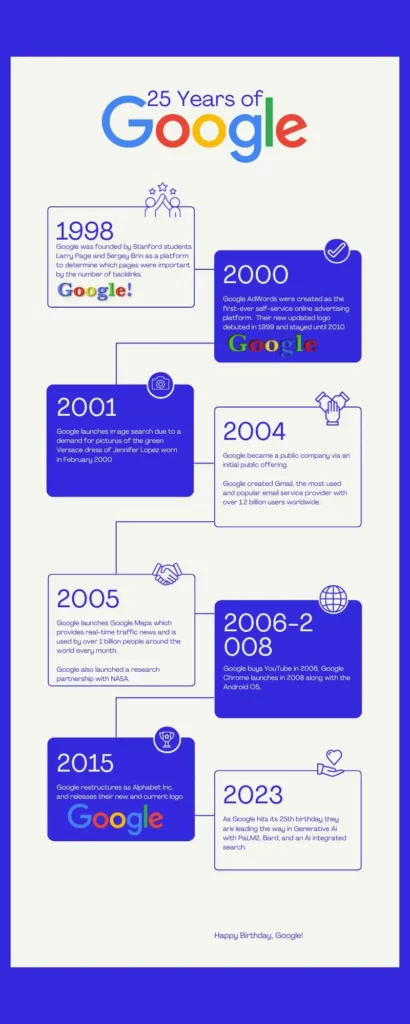
Google Photos
Google Photos, launched in 2015, revolutionized how we store, organize, and share our photos and videos. With unlimited cloud storage for high-quality images and videos, Google Photos alleviated the need for local storage solutions. Its intelligent organization and search capabilities, driven by artificial intelligence, make finding specific photos, creating albums, and reliving cherished memories effortless. Google Photos has become an indispensable tool for anyone looking to manage their digital photo library effectively.
DeepMind’s Achievements
DeepMind, a subsidiary of Alphabet, Google’s parent company, has achieved remarkable milestones in artificial intelligence. Notably, DeepMind’s AlphaGo defeated the world champion Go player in 2016, showcasing the potential of AI in complex problem-solving. Furthermore, DeepMind’s work in protein folding has the potential to revolutionize drug discovery and healthcare by accurately predicting protein structures. These accomplishments demonstrate the profound impact of AI on various fields beyond just search and advertising.
Google’s Quantum Supremacy
In 2019, Google made waves in the world of quantum computing by claiming “quantum supremacy.” They demonstrated that their quantum computer could solve complex problems far faster than classical computers. This achievement marked a significant milestone in the development of quantum technology, with potential applications ranging from cryptography to material science. Google’s dedication to pushing the boundaries of computing technology showcases its commitment to innovation.
Google Workspace
Formerly known as G Suite, Google Workspace is a suite of cloud-based productivity tools designed for collaboration and communication among businesses and teams. With applications like Gmail, Google Drive, Google Docs, and Google Meet, Workspace streamlines work processes, enhances productivity, and fosters collaboration, regardless of team size or location. Its constant updates and integrations make it an essential choice for modern organizations.
Google Meet and Google Classroom
Especially recently, Google Meet and Google Classroom have played pivotal roles in remote learning and virtual meetings. Google Meet provides a secure and user-friendly platform for video conferencing, facilitating virtual interactions among individuals and teams worldwide. On the other hand, Google Classroom revolutionized education by offering a centralized hub for teachers and students to collaborate, submit assignments, and access learning materials, even in remote or hybrid learning environments.
Google’s Commitment to Renewable Energy
Google has consistently demonstrated its commitment to sustainability by operating on 100% renewable energy. The company has substantially invested in renewable energy projects, including wind and solar farms. This dedication to reducing its carbon footprint and promoting clean energy sets a crucial example for businesses worldwide, showcasing the importance of corporate responsibility in the fight against climate change.

Google’s Impact on Small Businesses
Google has empowered small businesses to thrive in the digital era through various programs and initiatives. Tools like Google My Business provides local businesses with a prominent online presence, helping them connect with local customers. Google Ads offers cost-effective advertising options, allowing small businesses to reach their target audiences effectively. Grow with Google provides free training and resources, equipping entrepreneurs with the digital skills necessary to succeed in today’s competitive landscape.
Google’s Cultural Impact
Google’s influence on popular culture is undeniable. The company’s name has become synonymous with searching for information online, as we often say, “Just Google it.” Google has also been referenced in countless movies, TV shows, and books, reflecting its pervasive presence in our daily lives. From Google Doodles celebrating significant historical events to the company’s role in shaping modern language and communication, Google’s cultural impact is far-reaching and enduring.
Google’s Commitment to Accessibility
Google has consistently worked towards making technology more accessible to people with disabilities. Their dedication to inclusivity is evident through features like Voice Access, which allows users to control their devices through voice commands. Moreover, accessibility features integrated into Android and Google Workspace ensure that individuals with disabilities can fully participate in the digital world, promoting a more equitable society.
Google’s Lunar XPRIZE
Google’s sponsorship of the Lunar XPRIZE in 2007 ignited private space exploration. The competition challenged teams to land a rover on the Moon, travel 500 meters, and transmit high-definition video and images back to Earth. While the prize went unclaimed, it energized the aerospace industry, inspiring innovation and paving the way for future lunar missions, both public and private. Google’s support for space exploration underscores its commitment to pushing the boundaries of human achievement beyond our planet.
Google’s Commitment to Privacy
Google has consistently prioritized user privacy, implementing features and tools to give users greater control over their data. Features like incognito mode allow users to browse the web without their activity being recorded. Additionally, Google offers comprehensive privacy settings, enabling users to manage their data and account preferences. These measures reflect Google’s commitment to safeguarding user information in an increasingly digital world where privacy concerns are paramount.

Google’s Crisis Response
Google’s crisis response features have played a crucial role in times of disaster. Tools like Google Crisis Maps provide real-time information during emergencies, including natural disasters and public health crises. Google’s ability to aggregate and disseminate critical data helps first responders and affected individuals make informed decisions and stay safe. Furthermore, the company often launches donation campaigns to support relief efforts, showcasing its dedication to humanitarian causes.
Google’s Commitment to Education
Google for Education initiatives have transformed classrooms worldwide. Google Classroom, in particular, has become an indispensable tool for educators, offering a centralized platform for assignments, communication, and collaboration. Moreover, Google provides access to various educational resources, from interactive apps to virtual field trips. These efforts empower teachers and students alike, enhancing the learning experience and preparing students for the digital age.
Google’s Philanthropic Efforts
Google.org, the philanthropic arm of Google’s parent company, Alphabet, has significantly contributed to social and humanitarian causes. Google.org addresses global challenges through funding and partnerships, including education inequality, public health, and environmental conservation. Notable initiatives include Google.org’s support for organizations providing internet access in underserved regions, tackling climate change, and combating diseases. These philanthropic efforts reflect Google’s commitment to using its resources to impact the world positively.

Closing Notes
Since its humble beginnings in 1998, Google’s journey has been marked by innovation, transformation, and a commitment to making the world more connected and accessible. Google’s accomplishments have left an indelible mark on the digital landscape, from revolutionizing online search to pushing the boundaries of artificial intelligence and space exploration. As we celebrate Google’s 25th Birthday, we look forward to its continued innovation and positive influence on our lives and society.
Digital Results would be happy to help you with your digital marketing needs. Get in touch for a free 30-minute consultation—one of our experts will walk through how we can help optimize your search engine optimization (SEO).
Ready to Grow Your Search Engine Results?
Let Digital Results assist you in your SEO strategy and help
deliver the search engine results you need.

